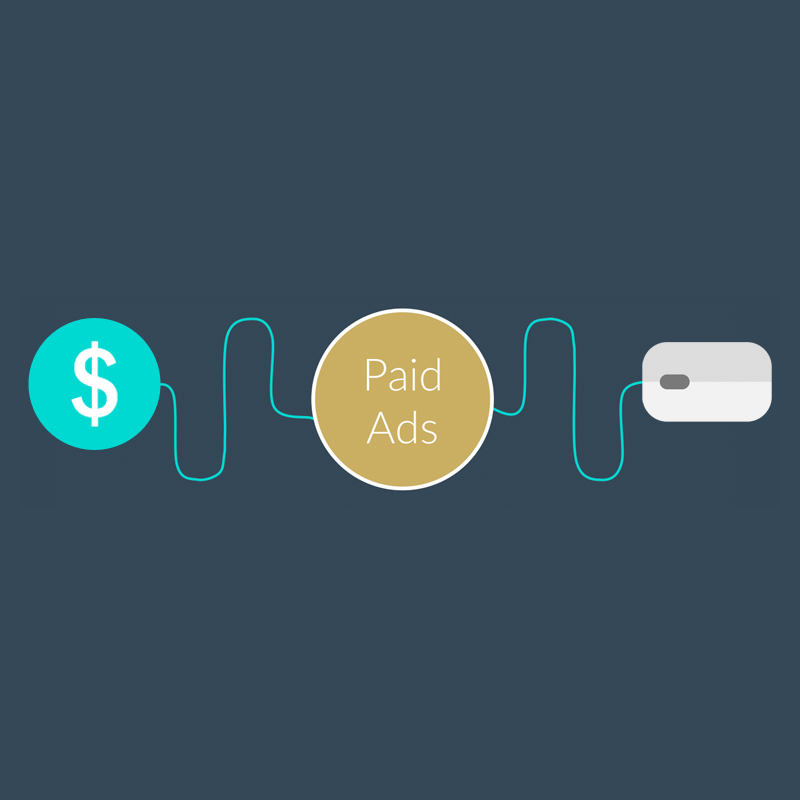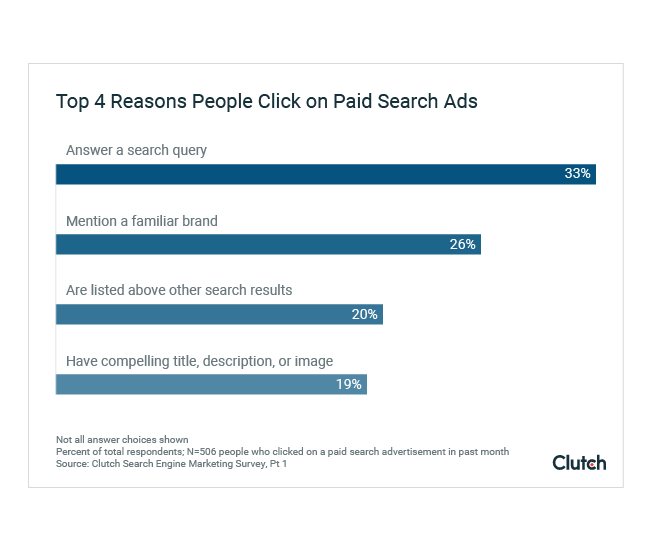
As online ads are becoming more native than they were, people just don't want to get fooled anymore.
While some people avoid clicking on those ads, how about those who are aware of the ads, and do click on them? What are their reasons for the action?
In a survey from agency research firm Clutch, it was discovered that 77 percent of people are confident they can recognize paid search ads. And here, 75 percent of the respondents said that clicking on ads made it easier for them to find the information they're looking for.
This is an indication that ads can actually be made appealing if they are tailored to be relevant to users' searches and capable of answering their queries.
If for example, users are searching for "New Year gifts", they are not looking for ads promoting vacation on distant island. Instead, they are more likely to expect ads with words like "sale" or "deal" or "discount" on them.
To come into this conclusion, Clutch surveyed 506 people who said they have clicked on paid ads in the past month on Google, Bing, YouTube and Amazon.
According to Clutch:
Clutch also discovered that:
- One-third of people (33 percent) click on a paid search ad because it directly answers their search query.
- People are more likely to click on a paid search ad on Google (63 percent) than on Amazon (15 percent), YouTube (9 percent), and Bing (6 percent).
- People are most likely to click on text paid search ads (49 percent) instead of shopping/product listing ads (31 percent) and video ads (16 percent).
- More than one-quarter of people (26 percent) click on a paid search ad because it mentions a brand they are familiar with.
- The primary reason people click on YouTube and Amazon search ads is because the ads mention a brand they are familiar with (33 percent).

It’s worth noting that Clutch's finding is not a reflection of how click-through rates are likely to be compared to individual users.
The survey results point to the fact that business need to connect themselves to queries people are asking. This is nothing new, but what is changing is that machine-learning technologies are becoming more capable in picking the most relevant ads to show next to specific queries.
"Including Bing, YouTube, or Amazon advertising as part of your company’s search engine marketing strategy provides some benefits that Google can't offer, given its saturation."
"Businesses that recognize the reasons and locations that people click on search ads can format a paid search engine marketing strategy that speaks directly to people’s search intent and preferences."
Clutch is also emphasizing that search engine ranking is more important for organic SEO than paid search advertising.
It comes to this conclusion by saying that "Only 20% of people are likely to click on a paid search ad because it is listed above other results."